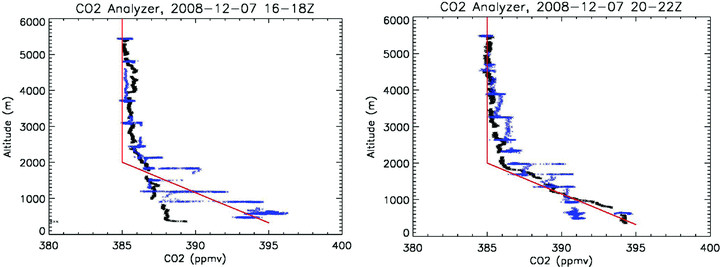I often hear that the emission of greenhouse gases (GHGs) by planes is particularly concerning because the emission of GHGs at high altitudes has an even higher impact on global warming than the emission of GHGs at low altitudes (e.g. sea level). I tried to find scientific evidence (e.g. peer reviewed publications, explanations in scholar books) for this claim on the internet but failed. Is the claim stated in the first sentence of my question true? If yes, could you point me towards respected literature? Thanks!
-
$\begingroup$ I don't remember ever hearing that claim. Related? $\endgroup$– Keith McClaryCommented Aug 14, 2019 at 22:18
-
$\begingroup$ I don't have an answer (I have heard the same claim myself, but don't know what the mechanism is or whether it is true), but this paper may be of interest: sciencedirect.com/science/article/pii/… $\endgroup$– Semidiurnal SimonCommented Aug 15, 2019 at 19:13
-
1$\begingroup$ You have to make a distinction between the Troposphere and the Stratosphere. The Troposphere is well mixed, and any CO2 from aircraft will be rapidly mixed and have no impact to "layers" in the Troposphere. The Stratosphere, on the other hand, is relatively highly stratified (hence the name), and aircraft flying there (common for long distance flights, and to get above thunderstorms) will leave CO2 in that layer, where it will stay for a longer period. So perhaps you are thinking of emissions in the Stratosphere? $\endgroup$– rchusoCommented Aug 15, 2019 at 19:33
3 Answers
I think you may be confusing two separate, but related, issues. Aircraft emissions at high altitudes are a concern for the ozone layer, because the NOx that is emitted by aircraft can catalytically destroy ozone. Supersonic aircraft fly higher up in the stratosphere than a typical jet, and thus can harm the ozone layer more effectively. The ozone layer is related to climate change, which is perhaps why you are mixing two issues. For the most part, aircraft greenhouse gas emissions are not a concern simply due to the altitude they are emitted. Instead, aircraft GHGs are a concern because they are long-lived in the atmosphere and well-mixed, causing "global" warming. Furthermore, aircraft emissions are expected to continue increasing for decades.
Yes, it is true that high altitude emissions of CO2 are more effective as a blanket to keep the Earth warm than the same emissions would be at sea level. On the other hand, emissions at sea level are hundreds or thousands of times more than those emitted by aeroplanes. Although CO2 is heavier than air and has a tendency to sink, convection and diffusion keeps the gases well mixed. The CO2 becomes very dispersed and doesn't separate into layers. Another factor is the vapour trails left by high flying aircraft, which reflect sunlight back into space, and that has a cooling effect.
-
1$\begingroup$ The question was what evidence there is for high altitude emissions being more effective than the same emissions at sea level. I imagine that an explanation of why this is the case (if it is the case) - i.e. the mechanism - would also satisfy. $\endgroup$ Commented Aug 15, 2019 at 19:03
According to this exam solution from ucmerced.edu
The residence time of air in the stratosphere is 1-2 years, so that CO2 concentrations in the stratosphere represent those found in the troposphere 1-2 years before. The growth rate of CO2 in the troposphere is 1-2 ppmv yr-1, and the time lag for transfer of air from the troposphere to the stratosphere thus results in a 1-2 ppmv difference in concentrations between the two reservoirs.
The charts in this question indicate that CO2 concentration decreases with altitude:
 Wikipedia says
Wikipedia says
In 1992, emissions of CO2 from aircraft were estimated at around two percent of all such anthropogenic emissions, and that year the atmospheric concentration of CO2 attributable to aviation was around one percent of the total anthropogenic increase since the industrial revolution, having accumulated largely over just the last 50 years.
So it seems that the altitude at which the GHGs are emitted does not make much difference.